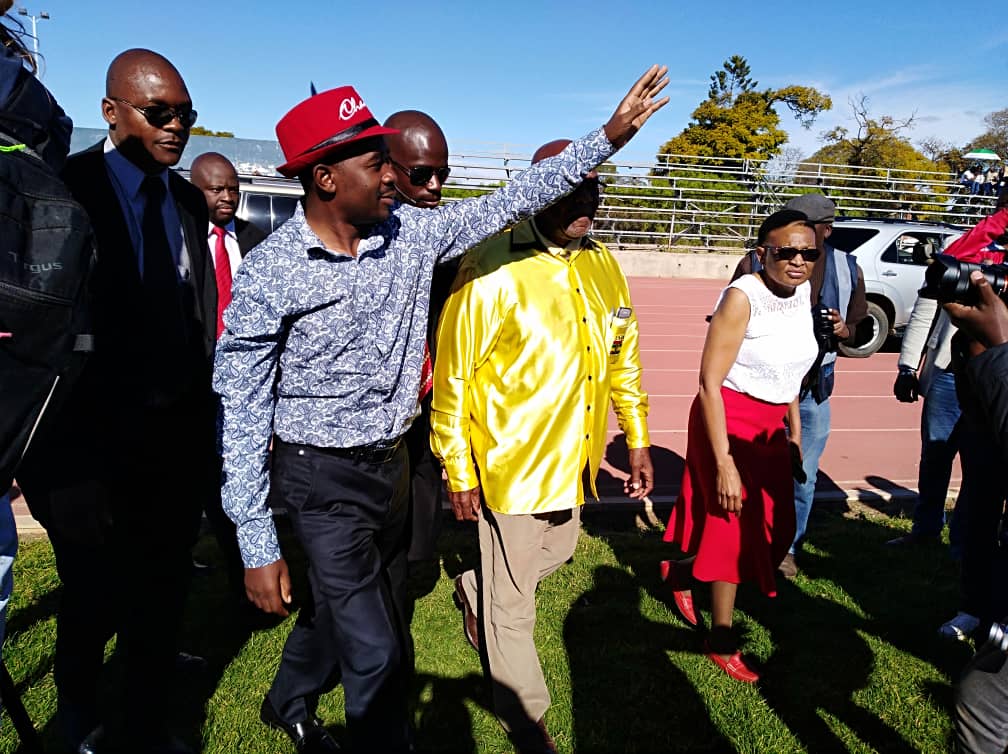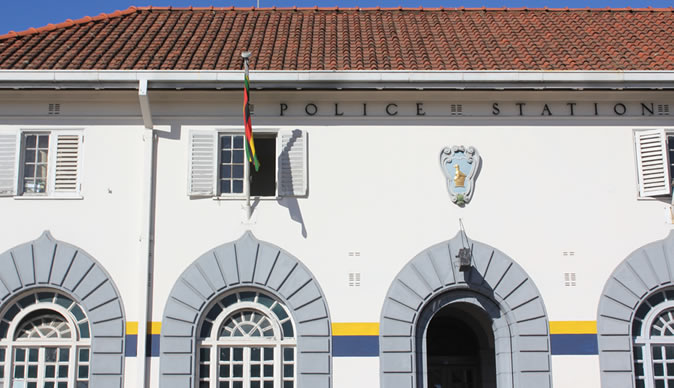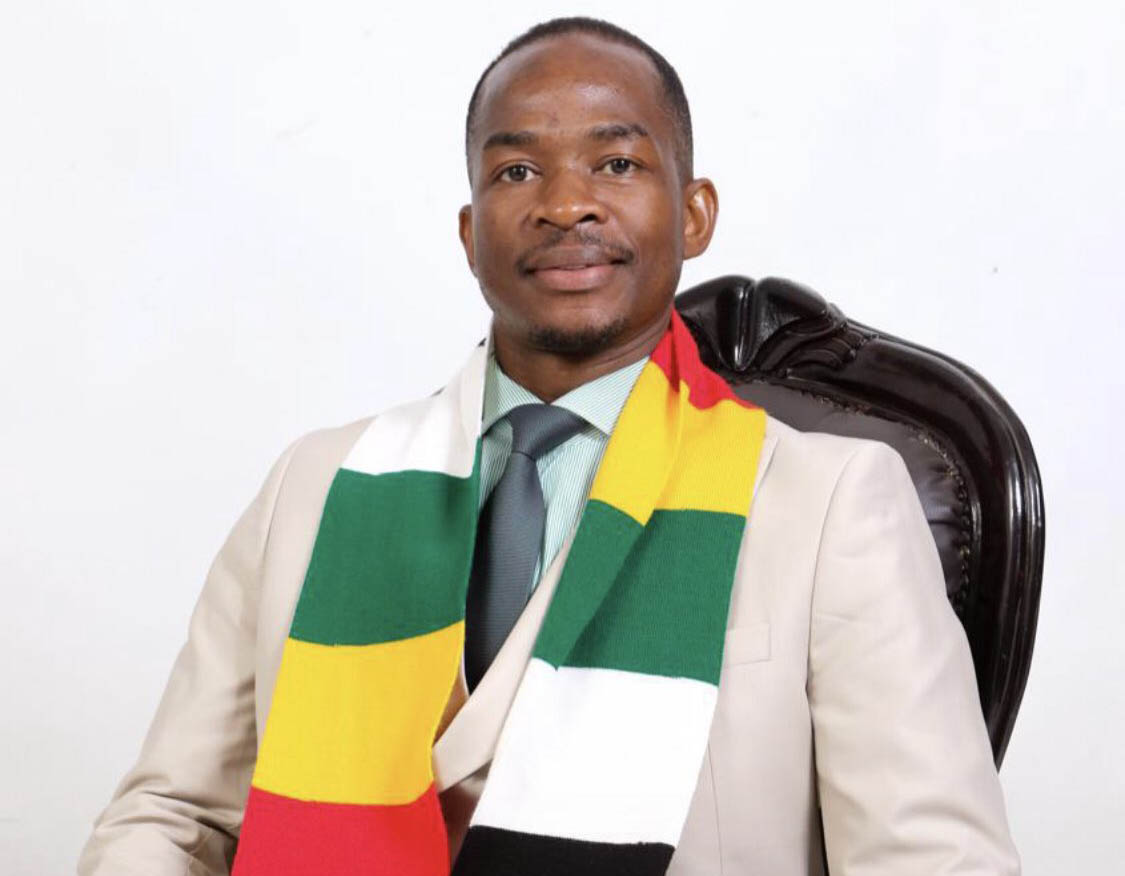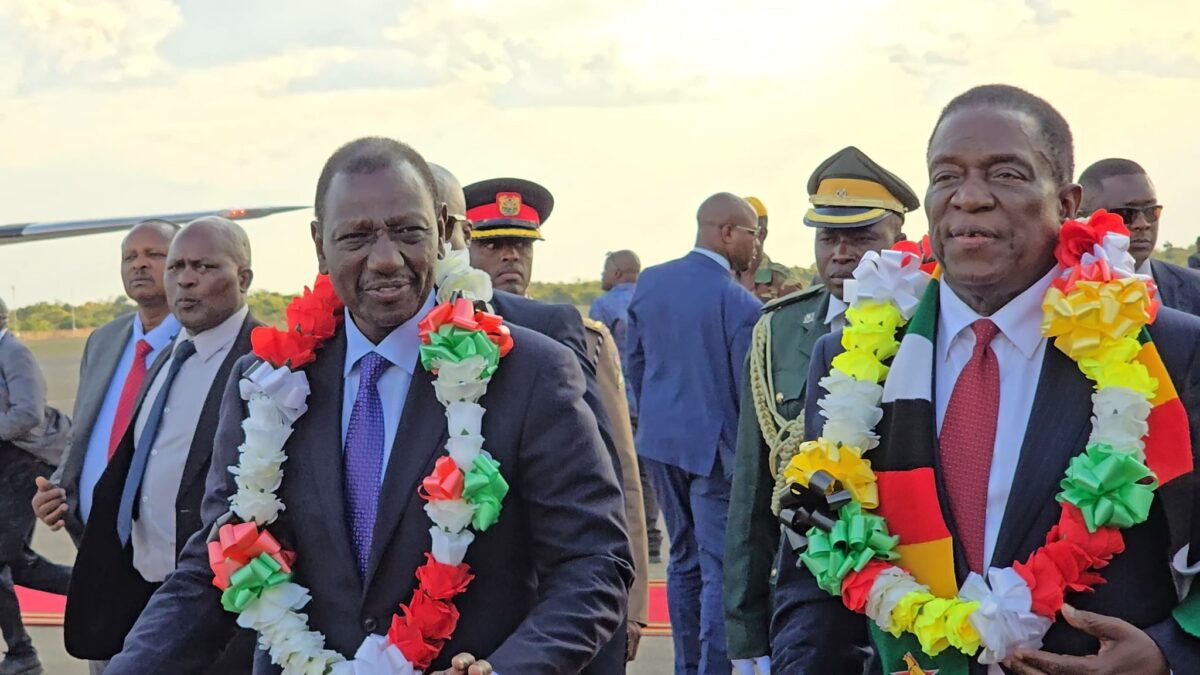A FEW months ago, as the 2018 election campaign got underway, I made it plain that I was backing Nelson Chamisa and the MDC Alliance. Not that this was a surprise. My political totem has always been clear. Having worked with Morgan Tsvangirai and the MDC, my political home is well known. We might disagree here and there, and I might be critical of some decisions, but like every other individual, I have my political choices. I would like them to win and form the next government.
This stance has disappointed others who preferred me to sit on the fence. But great questions of the day cannot be decided while sitting on the fence. Later, when this season is over, we shall return to the usual pattern. But right now, great decisions that will affect the course of events for the next 5 years must be made.
Many times, when people do political campaigns, the easiest thing is to focus on the negative things about your competitor. What have they done wrong? Why are they bad? Why are they unsuitable? In the case of ZANU PF, this is all too easy because their 38-year record has been predominantly abysmal. But that does not always help people when making decisions. People also need to know what is good about yourselves. Why should people vote for you?
Here, I present my reasons why Nelson Chamisa and the MDC Alliance are the smart choices. It not possible to go the full distance without pointing to ZANU PF’s wrongs but this is largely about why Chamisa and his team would be good for Zimbabwe. Another day, we will do the easier bit and outline why Emmerson Mnangagwa and ZANU PF are NOT the smart choices
A new culture of governance
A victory for Nelson Chamisa and the MDC Alliance will give Zimbabwe an opportunity for a fresh leadership experience after 38 years of predominantly ZANU PF rule. Government became stale under one-man rule for 37 years and there has been more continuity than change since the coup that brought the Mnangagwa administration. The system that Mugabe built has remained intact. State bureaucracy is still stuck in the old ways, two decades into the new century.
A new government will lead the transformation and overhaul of the way Zimbabwe is governed so that government truly serves the people. People do not want to be charity cases. They want autonomy to work and produce for themselves. After 38 years of the same system, Zimbabwe is in need of a disruptive approach to governance, whereby the old system is dismantled and the new is built in its place. This won’t happen with the same people who built and depend on that archaic system.
Generational mandate
Every generation has its mandate, which it is destined to fulfil. The generation of liberation leaders performed its part, bringing independence and for that, we will always be indebted to them. However, there is a new generation which must now drive the country forward. Chamisa, a young man who benefited from that independence, represents the new generation. A victory for Chamisa will be a historic moment symbolizing the handing over of the baton from one generation to another in the most democratic fashion possible. A vote for Chamisa is an endorsement for the readiness of the new generation to take up its mandate. Zimbabwe could once again be a leader among its peers, setting a democratic precedent for the entire continent.
Economic discipline and competence
Chamisa’s government will be prudent and disciplined in the management of the economy. Zimbabwe’s troubles are partly down to poor economic management, with government spending far more than it generates and the country buying far more from outside than it sells to outsiders. The government has had no discipline when it comes to monetary policy, which led us to record hyperinflation figures in 2007-2008 and the loss of our currency.
Now, with the bond notes debacle, we are facing similar problems again as government prints more money to feed its bad habits. This won’t change under ZANU PF. One of Chamisa’s closest allies is Tendai Biti, who as Finance Minister during the Government of National Unity was widely known for his “we eat what we kill” principle, the hallmark of a frugal and disciplined approach to economic management. A new government will bring back the discipline that helped stabilize the economy between 2009 and 2013.
Rebuilding the economy and job creation
Chamisa has pledged to resuscitate Zimbabwe’s ailing economy and the MDC Alliance’s SMART Governance Blueprint demonstrates that his team is serious about its intentions for Zimbabwe. Under Chamisa, the government will be an enabler and facilitator of business. There will be no need for foreign businesses to go through the Office of the President or Vice President. Professionals in the relevant agencies will be allowed to do their job without political interference.
State-owned companies will be reformed to ensure that they are viable and self-sustaining. They should generate revenue for the State rather than be a drain on the national coffers. The layer of corruption in those state-owned corporate boards will be removed and replaced by professionals.
Chamisa recognizes that while unemployment is a huge problem and the formal market has shrunk, many enterprising Zimbabweans are engaged in the informal sector. The new government will prioritize support to the informal sector, assisting it to transition into the formal sector so that it has access to finance and bigger markets for their products.
The new government will ensure that the country is safe for foreign direct investment, which is critical.
The Team
A leader is judged by the company that he or she keeps. One of the things that have endeared me to Chamisa and the MDC Alliance is the quality and commitment of the core team around him. People remember how Mudzuri transformed Harare as Executive Mayor. They remember Mwonzora’s excellent work as a negotiator during the constitution-making process. They also remember how Biti ran the economy with excellent discipline. Although with very limited resources compared to the previous election, Chamisa has run a well-organised and popular election campaign. The spirit of volunteering that has sustained the campaign has been impressive.
There is a team of committed individuals who are hungry for success and are motivated by the public good. For the first time, there is truly a broad alliance of parties and competent people who will ensure Chamisa remains on the right path. The likes of Welshman Ncube, Tendai Biti, Elias Mudzuri, Douglas Mwonzora and others are proven leaders who have shown humility and commitment to the cause so ably championed by the departed hero of the democratic struggle, Morgan Tsvangirai. This team will not allow him to stray and they are all people that Chamisa respects.
Strong institutions
Chamisa’s team has pledged to transform the governance culture by building, enabling and strengthening public institutions. The best-performing nations are those whose foundations are built upon strong institutions rather than strong individual leaders. Leaders must at all times submit to institutions. Zimbabwe has had strong individuals in power and nurtured a “chef” mentality while immobilizing and neutralizing institutions. Institutions such as the judiciary, ZEC, the Auditor-General, Anti-Corruption Commission, National Prosecuting Authority, law enforcement and intelligence agencies will be given institutional independence and control of their own resources so that they can execute their constitutional mandates more effectively. There have to be strong checks and balances. Chamisa will not be allowed to run roughshod over national institutions the way previous leaders have done.
Rule of law and end of repression
Chamisa understands that a fundamental plank of building a successful nation is respect for the rule of law in the substantive sense. He knows the rule of law is more than adherence to existing laws. Rather those laws must comply with human rights and international norms. The MDC parties made an important contribution to the new Constitution, which Chamisa has pledged to fully implement. ZANU PF has had 5 years, in which it has failed to implement basic elements of the Constitution. Investors are drawn to countries where the rule of law is respected. Contracts must be respected and protected.
Furthermore, Chamisa has pledged to remove repressive legislation, including the notorious POSA and AIPPA, emblematic laws of the old, repressive order which the current administration has retained for future use should they remain in power. With Chamisa’s new administration, these and similar laws will simply be removed from the statute books.
Fighting corruption
Chamisa understands that along with government indiscipline, corruption is one of the biggest scourges that has killed the economy. Corruption has been the hallmark of ZANU PF rule for 38 years. Pledges to fight corruption have been mere tokenism. There have been many scandals over the years, with no repercussions on the perpetrators except where they become political opponents. Instead, people of corrupt and devious tendencies gravitate towards ZANU PF because they know it is a haven for the corrupt. ZANU PF is not serious about fighting corruption because the biggest beneficiaries are those in power and their associates. Their heartlessness is shown by how they flaunt ill-gotten wealth before impoverished citizens. Only a fresh, non-ZANU PF government will root out corruption. We need a new sheriff in town.
A government with a social conscience
While economic progress is critical, it is important to ensure that the weak and vulnerable are not left behind. Chamisa’s government will have social policies that target protection for children, the aged, people living with disabilities and others who have been historically disadvantaged such as women. Chamisa understands the challenges faced by old aged pensioners who are receiving a pittance after years of loyal service to the nation. He knows many people lost their savings during the days of hyperinflation and changeover to the multi-currency regime. Chamisa knows there is the need for compensation and policies that ensure the National Social Security Authority’s (NSSA) funds to benefit the intended beneficiaries rather than fund economic projects of political elites and employees’ perks.
Education and Health
The state of health and educational facilities in the country is deplorable. There was a time when Zimbabwe was hailed as a success story in education and health and the nation had big dreams. However, the past 20 years have seen a massive decline in health service delivery and public education. The current government has no incentive to resuscitate health facilities because they travel to foreign countries for their health needs, just like it was during the old order. Their children have no use for poor public schools and local universities and colleges. When he was education minister during the GNU, David Coltart showed that it was possible to make great progress in a short space of time.
Open and accountable government
Chamisa and the MDC Alliance have promised more transparency and accountability in government and public affairs. It will reaffirm the principle that authority to govern comes from the people and that government must account to them. In this regard, transparency is key. Even though he is not obliged to do so, Chamisa will attend Parliament to engage MPs, something that Mugabe and his successor Mnangagwa never did as presidents. Right now, institutions like ZEC are not trusted because their operations are opaque. Big loan agreements and guarantees which the constitution requires to be published are never published. Ministers will not be allowed to snub parliamentary committees or hold them in contempt as they have done under ZANU PF. This will have to change as government and public institutions have to be more accountable to the people.
Devolution
We voted for a Constitution that includes devolution as part of the system of government but ZANU PF has refused to implement it for the past 5 years. Instead, it has already hinted at removing it from the Constitution. Devolution allows people to govern their affairs at the local level. It enables them to create local solutions to local challenges and to make more effective use of their resources. The MDC fought hard, against the odds during the constitution-making process, to ensure devolution was included and it is not surprising that ZANU PF has refused to implement it. Only a new government under the MDC will implement devolution. Chamisa has also pledged to bring back Executive Mayors to run local authorities. Local authorities will cease to be puppets of the Minister of Local Government – this will help in the running of cities and service delivery.
Empowering the farmer
The land revolution brought the land to the people but it did not give them security of tenure. The resettled farmer remains an insecure farmer, vulnerable to the whims of political actors. That cannot be the foundation of an agricultural revolution which Zimbabwe now needs. It is important to give title to land both for protection and as an incentive to long-term investment and production. I am enamoured with the idea of transforming the dead capital into live capital.
Also, there are still too many political elites holding too much land – the problem of multiple farm ownership. ZANU PF has had ample opportunities to solve this problem but there is simply no appetite for it because the biggest beneficiaries are those who currently have power.
Truth, healing and justice
Our country has a terrible and painful past. These cannot be wiped away by calling them bygones. There is no need to be vindictive, but it is important to ensure that the emotional, physical and financial needs of victims and survivors of past wrongs are taken care of. As my colleague, Sipho Malunga has stated in recent weeks, there is no record of perpetrators ever presiding over national healing and justice processes. There has to be a change of some sort if there are to be authentic processes aimed at finding truth, healing, justice and closure for victims and survivors.
Harnessing the Diaspora
Chamisa and the MDC Alliance understand the Diaspora. They recognize the value of the Diaspora not just as senders of remittances but as agents of ideas and transformation in the new Zimbabwe. For years, the MDC has always had a firm relationship with the Diaspora, many of whom sought sanctuary from ZANU PF-authored economic misery. The positive attitude to the Diaspora, which goes beyond the tokenism of ZANU PF shows that Chamisa and his team are inclusive and can indeed harness this critical sector for Zimbabwe’s future success. With the MDC Alliance, the Diaspora would have voted in elections.
Tsvangirai legacy
Morgan Tsvangirai, the icon of the post-independence democratic struggle is the president we never had. He died well before his time, but not before he had made an enormous contribution which even his worst enemies acknowledge. Chamisa was there with him from the beginning. He never wavered. He is one of the few who understand what Tsvangirai represented, his dreams and aspirations. They walked the trenches together, and faced the challenges of fighting a vicious regime. The MDC Alliance is Tsvangirai’s baby. Chamisa’s victory would represent a fulfilment of Tsvangirai’s dream. A vote for Chamisa is also a vote for Tsvangirai and the presidency that he was cruelly denied by the system.
Conclusion
Finally, as another legal colleague Thompson Chengeta once wrote, it is important for ZANU PF to get some experience in opposition. It is for its own good and that of Zimbabwe, too. ZANU PF’s arrogance and lethargic approach to issues are partly down to its long stay in power and the impression of invincibility which t now believes. It takes people and its role for granted because it believes it will be there forever. There is, therefore, no-one to account to in the future. It treats the opposition with contempt because it has forgotten what it means to oppose a dominant system. This mentality can only change if ZANU PF moves across the parliamentary floor and becomes an opposition party. In the long run, it will be good for Zimbabwe’s democracy.
Visit Magaisa’s blog, CLICK HERE















